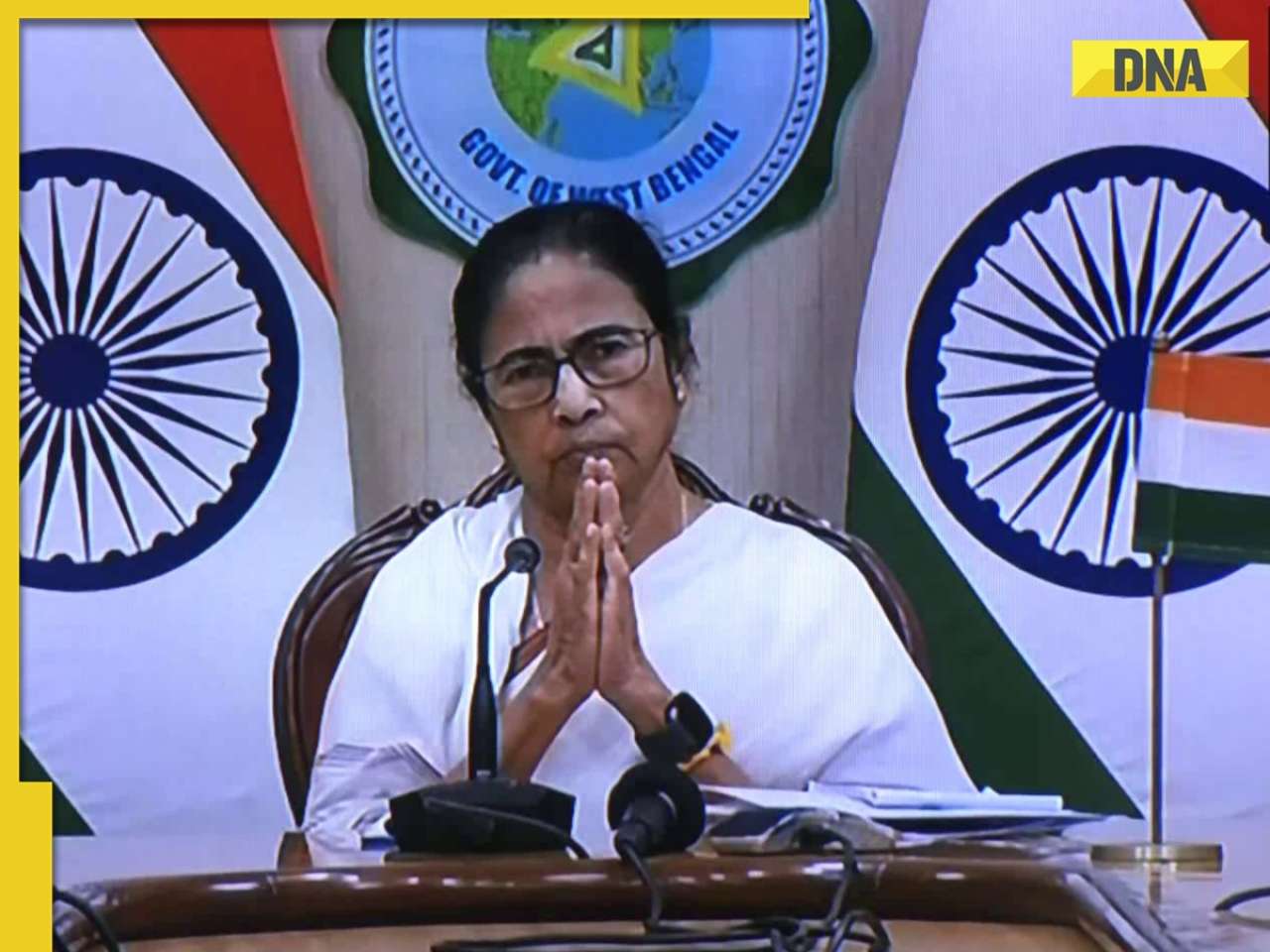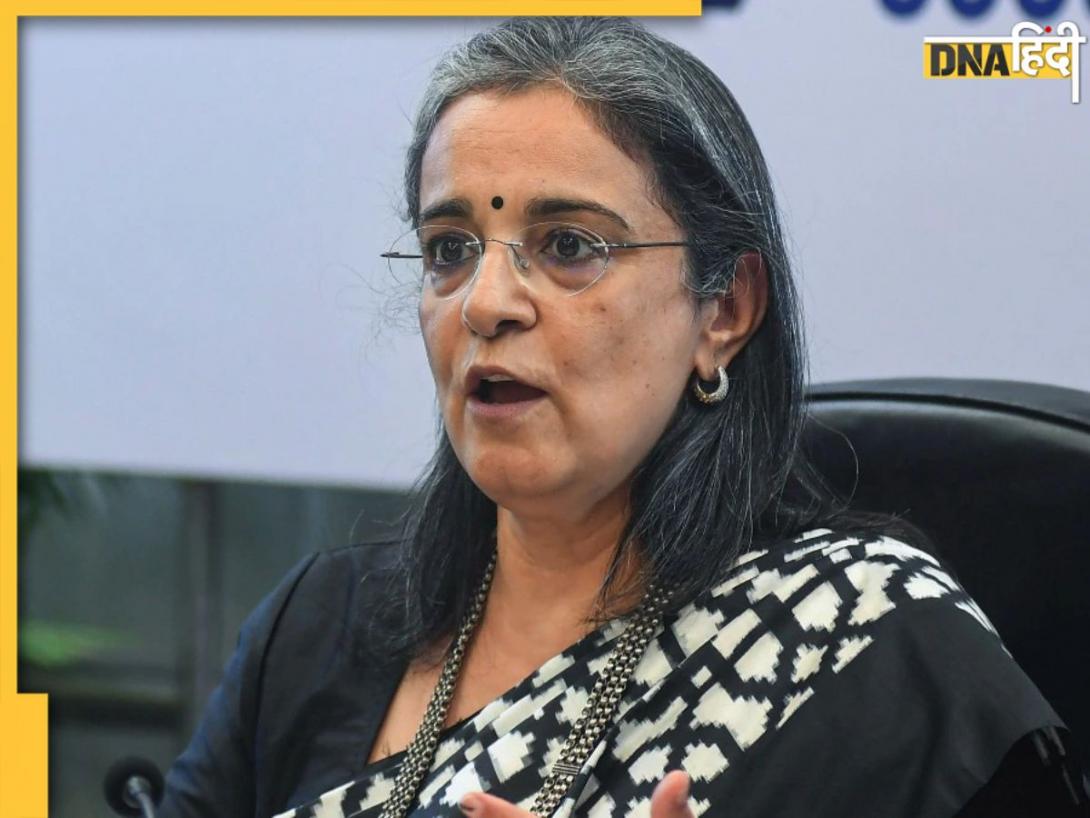Climate change: Increased heat waves, longer warm seasons, and shorter cold seasons will result from 1.5 degrees C of global warming, flags IPCC.
Climate change is a serious issue that the world's leaders must address. Days after scientists expressed alarm about the climate hitting a tipping point, the Intergovernmental Panel on Climate Change (IPCC) issued a serious warning, predicting that the world will reaching warming at the critical level of 1.5 degrees Celsius in two decades.
The UN's IPCC has released its sixth assessment report on climate change. According to the report, human impact is causing irreversible climate change in every region of the world.
Since July 26, 195 member countries have validated the report in virtual sessions held over two weeks. António Guterres, Secretary-General of the United Nations (UN) stressed that the latest report if “code red” for all humans, "Today's IPCC Working Group 1 Report is a code red for humanity."
Reaching critical climate change threshold – What to expect?
In a first, the UN IPCC has assessed the probability of extreme events across a variety of scenarios. Increased heat waves, longer warm seasons, and shorter cold seasons will result from 1.5 degrees Celsius of global warming.
Heavy rain storms that used to occur once every decade are now 1.3 times more common and 6.7 percent more intense than they were 50 years ago.
Heat extremes would be more likely to approach crucial tolerance thresholds for agriculture and health at 2 degrees Celsius of global warming.
Rising sea levels would cause more frequent and intense coastal flooding in low-lying locations. Droughts may occur every five or six years by the end of the century, according to the analysis.
The possibilities and worse scenarios
The IPCC Working Group’s release will be the first part of the Sixth Assessment Report (AR6) on climate change. AR6 is expected to be finished in 2022.
According to the IPCC research, increasing warming implies more frequent extreme heat waves. Permafrost thawing, loss of seasonal snow cover, and melting of glaciers and ice sheets will all be intensified by continued global warming.
According to Panmao Zhai, IPCC co-chair, climate change is already affecting every corner of the planet.
Are there any positives?
The IPCC report expressed optimism asserting that global warming may be limited to 1.5 degrees Celsius. According to the IPCC report, global temperatures may not settle for another 20-30 years.
Dr Friederike Otto, Associate Director of the Environmental Change Institute at the University of Oxford and one of the IPCC report's authors said, “If we reduce emissions globally to net-zero by 2040 there is still a two-thirds chance to reach 1.5 degrees and if we globally achieve net-zero emissions by the middle of the century, there is still a one-third chance to achieve that.”
For the first time, the sixth assessment report presents a more specific regional evaluation of climate change.
According to the findings, the paradigm shift improves in translating physical climate changes into what they entail for society and ecosystems.
It also focuses on meaningful data that can be used to guide risk analysis, adaptation, and other decision-making.
![submenu-img]() ‘Body dismembered, pureed in blender’: Former model gets brutally murdered by her husband after..
‘Body dismembered, pureed in blender’: Former model gets brutally murdered by her husband after..![submenu-img]() Venom The Last Dance trailer: Tom Hardy channels Tom Cruise, battles boss symbiote Knull, fans say 'it will be a blast'
Venom The Last Dance trailer: Tom Hardy channels Tom Cruise, battles boss symbiote Knull, fans say 'it will be a blast'![submenu-img]() Meet man who once lost Rs 1.27 lakh crore in a day, today owns giant e-commerce business worth crores, he is…
Meet man who once lost Rs 1.27 lakh crore in a day, today owns giant e-commerce business worth crores, he is…![submenu-img]() Katy Perry, Orlando Bloom share steamy kiss at MTV Video Music Awards 2024; video goes viral
Katy Perry, Orlando Bloom share steamy kiss at MTV Video Music Awards 2024; video goes viral![submenu-img]() 'Ready to resign...': CM Mamata Banerjee as junior doctors continue protest over Kolkata rape-murder case
'Ready to resign...': CM Mamata Banerjee as junior doctors continue protest over Kolkata rape-murder case![submenu-img]() Arvind Kejriwal Bail Live: Tihar Jail से बाहर निकले केजरीवाल, बोले- 100 गुना ज्यादा बढ़ गया है मेरा हौसला
Arvind Kejriwal Bail Live: Tihar Jail से बाहर निकले केजरीवाल, बोले- 100 गुना ज्यादा बढ़ गया है मेरा हौसला![submenu-img]() Kolkata Rape-Murder Case: आरोपी संजय रॉय का नहीं होगा नार्को टेस्ट, CBI को कोर्ट से नहीं मिली मंजूरी
Kolkata Rape-Murder Case: आरोपी संजय रॉय का नहीं होगा नार्को टेस्ट, CBI को कोर्ट से नहीं मिली मंजूरी![submenu-img]() Sanjauli Masjid Dispute: शिमला से मंडी तक मस्जिद विवाद, अवैध निर्माण, छेड़छाड़ या बदलती डेमोग्राफी, जानें क्या है इसकी असली जड़?
Sanjauli Masjid Dispute: शिमला से मंडी तक मस्जिद विवाद, अवैध निर्माण, छेड़छाड़ या बदलती डेमोग्राफी, जानें क्या है इसकी असली जड़?![submenu-img]() 'ICICI बैंक के साथ नहीं हुई कोई डील', SEBI चेयरपर्सन माधवी पुरी बुच
'ICICI बैंक के साथ नहीं हुई कोई डील', SEBI चेयरपर्सन माधवी पुरी बुच ![submenu-img]() Mandi Mosque Case: हिमा�चल प्रदेश के मंडी में मस्जिद के अवैध हिस्से को लेकर भारी बवाल, पूरे शहर में तनाव
Mandi Mosque Case: हिमा�चल प्रदेश के मंडी में मस्जिद के अवैध हिस्से को लेकर भारी बवाल, पूरे शहर में तनाव![submenu-img]() ‘30 LPA, 3BHK, no in-laws’: Woman earning Rs 1.32 lakh salary lists demands for future husband, netizens say...
‘30 LPA, 3BHK, no in-laws’: Woman earning Rs 1.32 lakh salary lists demands for future husband, netizens say...![submenu-img]() In a big EV push, Centre launches Rs 10900 crore PM E-Drive scheme to replace…
In a big EV push, Centre launches Rs 10900 crore PM E-Drive scheme to replace…![submenu-img]() World’s longest car has helipad, swimming pool, mini-golf course, can seat over…; it cost…
World’s longest car has helipad, swimming pool, mini-golf course, can seat over…; it cost…![submenu-img]() This car sets new Guinness world record for becoming longest driving EV on a single charge; it cost Rs…
This car sets new Guinness world record for becoming longest driving EV on a single charge; it cost Rs…![submenu-img]() MG Windsor EV launched in India: Check price, features, design of India’s first ‘CUV’
MG Windsor EV launched in India: Check price, features, design of India’s first ‘CUV’![submenu-img]() Meet woman, who belongs to tribal family, cracked UPSC exam in fourth attempt, became IAS officer with AIR...
Meet woman, who belongs to tribal family, cracked UPSC exam in fourth attempt, became IAS officer with AIR...![submenu-img]() Meet woman who cracked UPSC in 1st attempt without coaching, became IPS at 22, but resigned after 4 years due to...
Meet woman who cracked UPSC in 1st attempt without coaching, became IPS at 22, but resigned after 4 years due to...![submenu-img]() Meet genius, an Indian who worked with IIT, had NASA connection, went missing and was found years later in...
Meet genius, an Indian who worked with IIT, had NASA connection, went missing and was found years later in...![submenu-img]() Meet man, who lost eyesight at 8, got record-breaking job offer after graduation, not from IIT, NIT, salary is Rs...
Meet man, who lost eyesight at 8, got record-breaking job offer after graduation, not from IIT, NIT, salary is Rs...![submenu-img]() Meet woman, IAS Tina Dabi's friend who cracked UPSC exam in first attempt without coaching, secured AIR...
Meet woman, IAS Tina Dabi's friend who cracked UPSC exam in first attempt without coaching, secured AIR...![submenu-img]() Malaika Arora Father Death: Anil Mehta's Final Words To His Daughter Malaika Arora
Malaika Arora Father Death: Anil Mehta's Final Words To His Daughter Malaika Arora![submenu-img]() Chandigarh Blast: Grenade Explosion In Sector 10; Auto Driver Arrested, Investigation Ongoing
Chandigarh Blast: Grenade Explosion In Sector 10; Auto Driver Arrested, Investigation Ongoing![submenu-img]() BSF Jawan Injured As Pakistan Violates Ceasefire Near LoC Days Before Jammu Kashmir Elections 2024
BSF Jawan Injured As Pakistan Violates Ceasefire Near LoC Days Before Jammu Kashmir Elections 2024![submenu-img]() Rahul Gandhi US Visit: Rahul Gandhi Criticizes BJP And RSS At National Press Club, US | INDIA
Rahul Gandhi US Visit: Rahul Gandhi Criticizes BJP And RSS At National Press Club, US | INDIA![submenu-img]() Kolkata Doctor Case: ED Reveals Properties Of RG Kar Ex-Principal Sandip Ghosh Found In Raids
Kolkata Doctor Case: ED Reveals Properties Of RG Kar Ex-Principal Sandip Ghosh Found In Raids![submenu-img]() Meet man who once lost Rs 1.27 lakh crore in a day, today owns giant e-commerce business worth crores, he is…
Meet man who once lost Rs 1.27 lakh crore in a day, today owns giant e-commerce business worth crores, he is…![submenu-img]() Meet woman, popular TV actress who left acting to build Rs 820 crore company from scratch, she owns one of famous…
Meet woman, popular TV actress who left acting to build Rs 820 crore company from scratch, she owns one of famous…![submenu-img]() Eastman Strengthens Leadership team, Charts Course for a New Future
Eastman Strengthens Leadership team, Charts Course for a New Future![submenu-img]() Emotional Intelligence for Entrepreneurs: A Key to Business Success
Emotional Intelligence for Entrepreneurs: A Key to Business Success![submenu-img]() Meet Pakistan’s richest man with Rs 111674 crore net worth, owns Jacksonville Jaguars and luxury properties
Meet Pakistan’s richest man with Rs 111674 crore net worth, owns Jacksonville Jaguars and luxury properties![submenu-img]() AI Insights: Top 7 high-paying jobs in India by 2050
AI Insights: Top 7 high-paying jobs in India by 2050![submenu-img]() Streaming This Week: Sector 36, Berlin, Khalbali Records, Mr Bachchan, latest OTT releases to binge-watch
Streaming This Week: Sector 36, Berlin, Khalbali Records, Mr Bachchan, latest OTT releases to binge-watch![submenu-img]() Meet Rishi Kapoor's heroine who became star with hit debut, quit films after continuous flops; left India to live in...
Meet Rishi Kapoor's heroine who became star with hit debut, quit films after continuous flops; left India to live in...![submenu-img]() India's most successful star kid gave blockbusters at 25, bigger than superstar dad; not Ranbir, Hrithik, Salman, Alia
India's most successful star kid gave blockbusters at 25, bigger than superstar dad; not Ranbir, Hrithik, Salman, Alia![submenu-img]() Meet India's most unsuccessful actor, has 180 flops, no hit since 1998, still a superstar; not Govinda, Akshay, Salman
Meet India's most unsuccessful actor, has 180 flops, no hit since 1998, still a superstar; not Govinda, Akshay, Salman ![submenu-img]() 'Ready to resign...': CM Mamata Banerjee as junior doctors continue protest over Kolkata rape-murder case
'Ready to resign...': CM Mamata Banerjee as junior doctors continue protest over Kolkata rape-murder case![submenu-img]() Gaurs Group Conducts Live Lottery for 3X Over-subscribed project- Gaur NYC Residences
Gaurs Group Conducts Live Lottery for 3X Over-subscribed project- Gaur NYC Residences![submenu-img]() LAWA Global Innovations: Where Adventure Meets Passion Through a Dynamic Husband-and-Wife Duo
LAWA Global Innovations: Where Adventure Meets Passion Through a Dynamic Husband-and-Wife Duo![submenu-img]() Who is Premanand Maharaj, AI victim whose voice is being used for...
Who is Premanand Maharaj, AI victim whose voice is being used for...![submenu-img]() Kerala: Professor collapses and dies during Onam celebrations at college after…
Kerala: Professor collapses and dies during Onam celebrations at college after…












































)
)
)
)
)
)
)
)
)
)
)
)
)
)
)





)
)
)
)
)
)